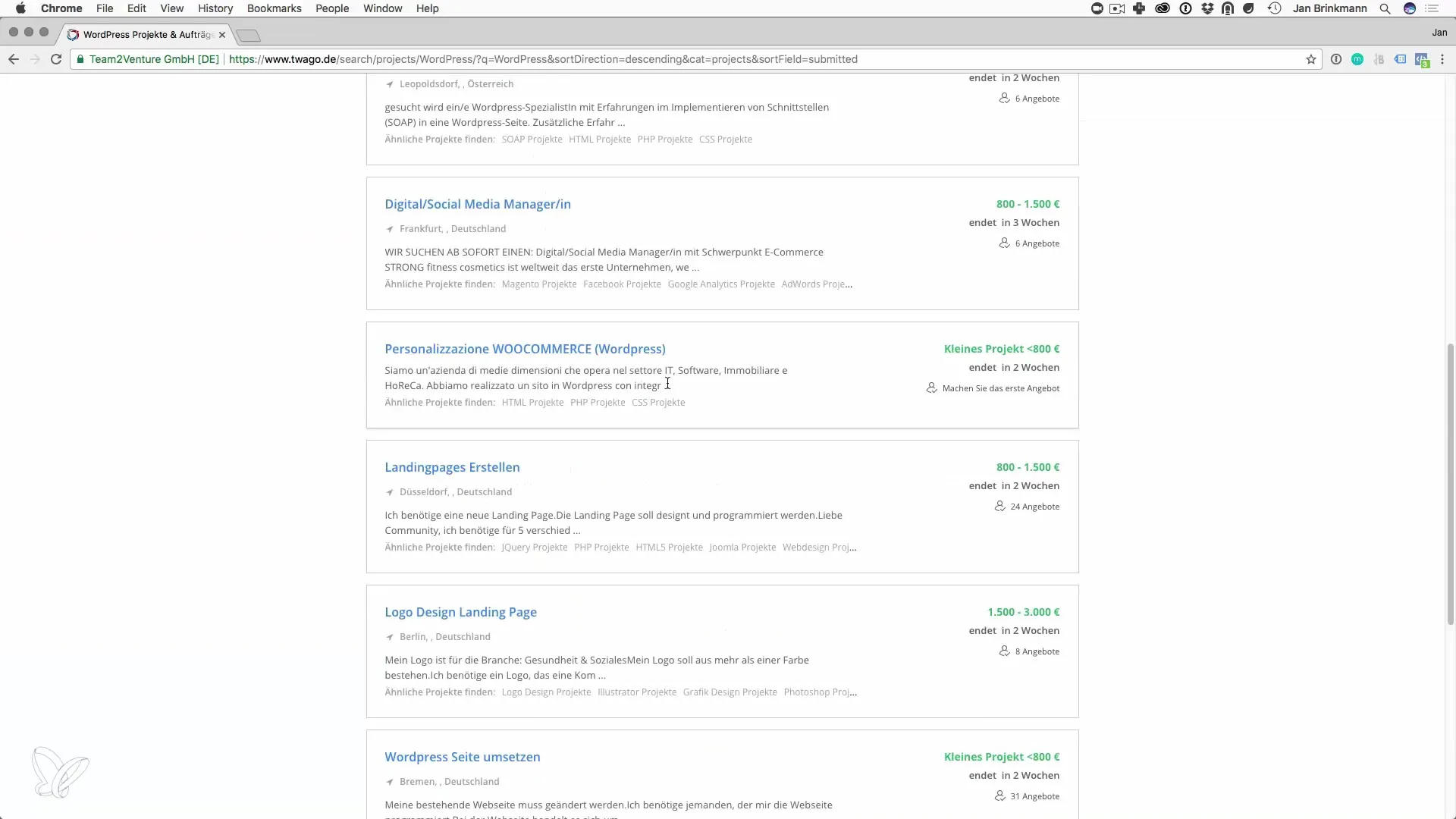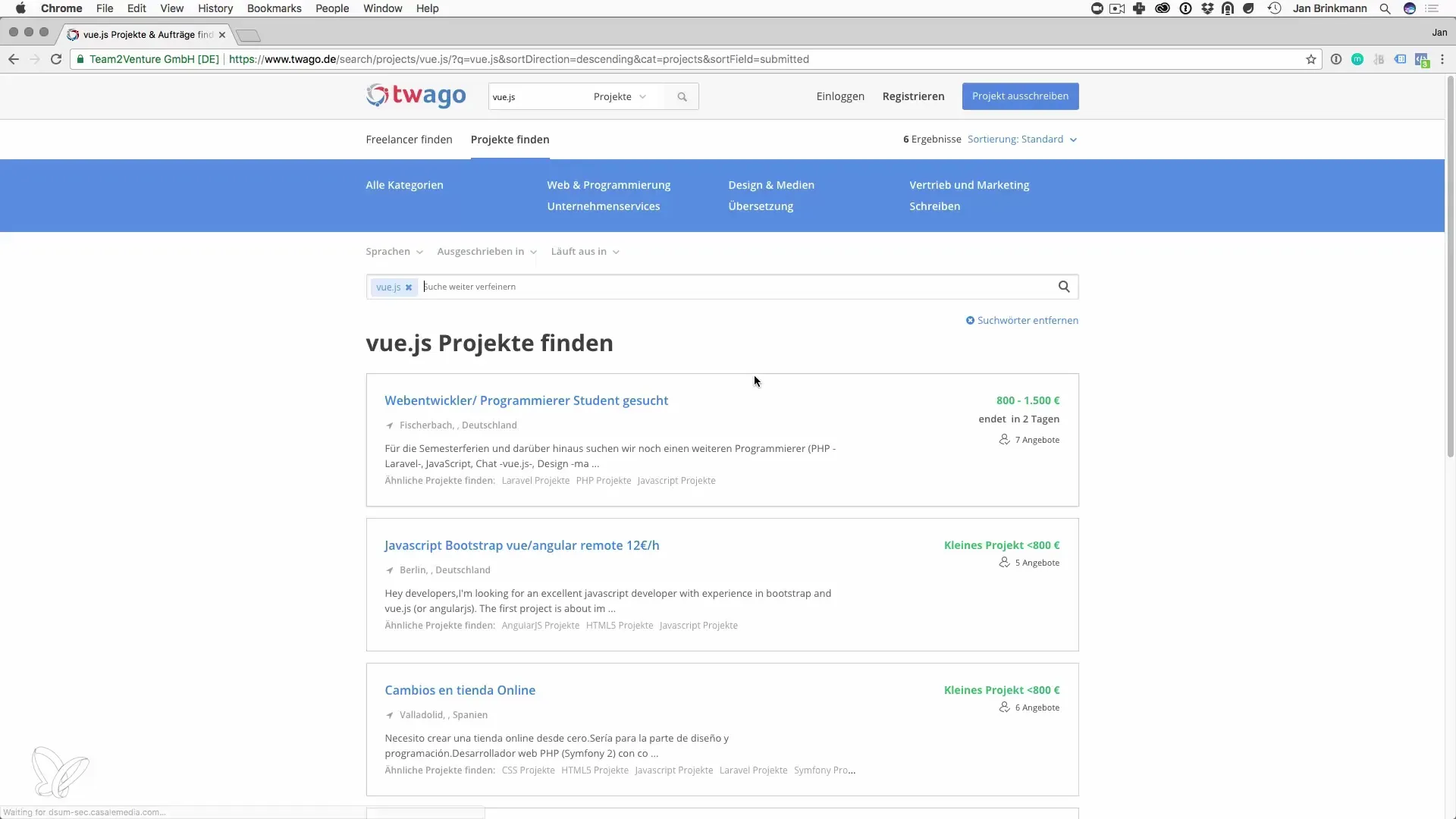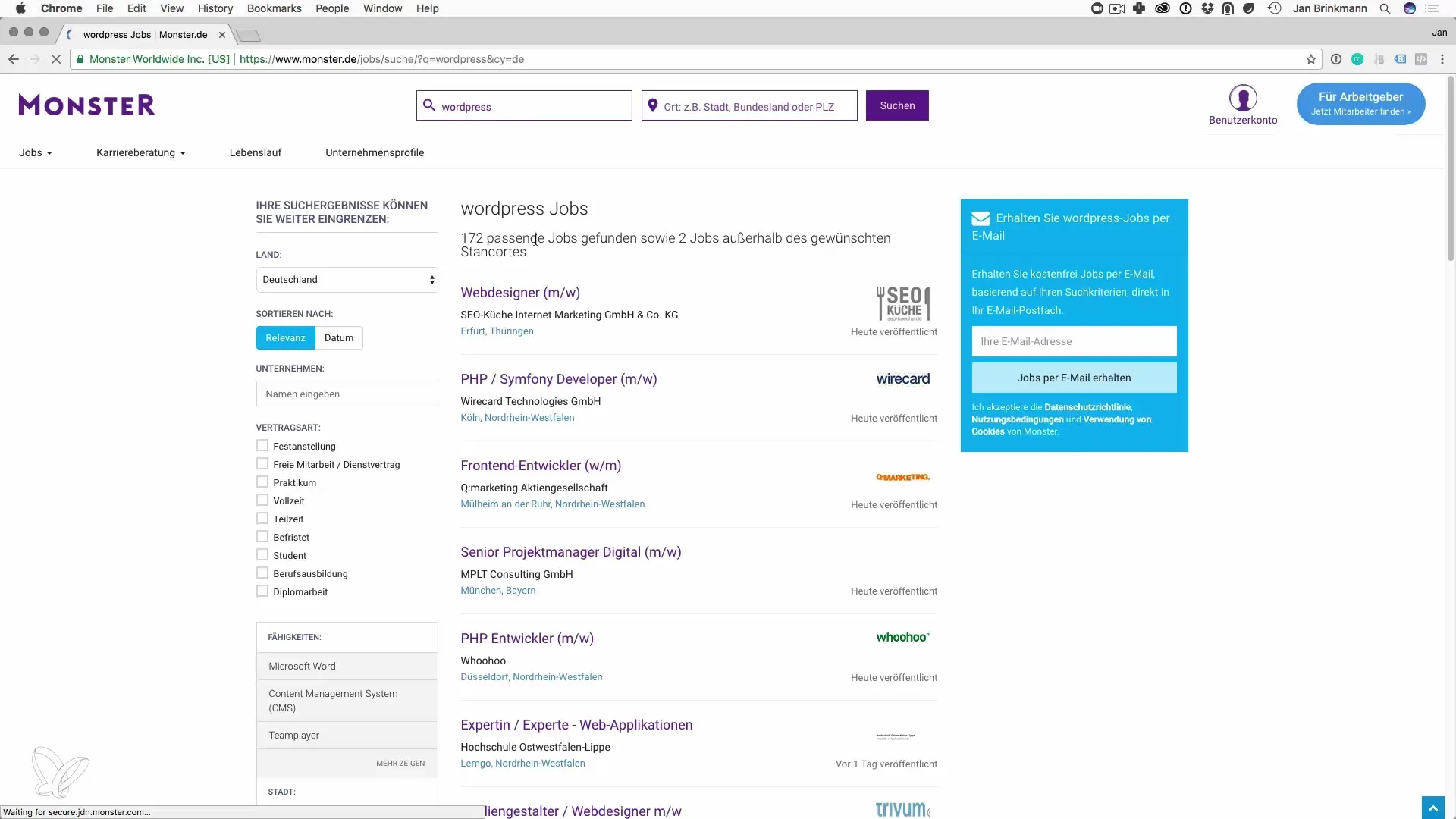The path to self-employment is challenging and exciting. A thorough market analysis can provide you with crucial advantages and help you successfully find your niche. In this guide, I will show you concrete steps and methods to gather reliable information about your target markets. We will not rely on vague assumptions, but rather use clear, measurable criteria. Let's dive straight into the details!
Key findings
- A comprehensive market analysis is essential for any startup.
- Use platforms like Twago and Freelancer to identify potential projects.
- Conduct thorough research on relevant keywords to measure demand.
- Connect with competitors and analyze their offerings and marketing strategies.
Step-by-step guide
1. Find suitable platforms for your research
The first step in market analysis is to utilize platforms that offer services. Visit internet portals such as twago.de or freelancer.com and search for projects in your area of interest.

2. Search for projects in your niche
On Twago, for example, you can browse various categories. If you are working in web development, focus on projects in the "Web and Programming" area. Filter the projects by keywords to find specific tasks that match your offerings.

3. Analyze the number of projects and trends
Look at the number of available projects. If you search for "WordPress" and find 8000 projects, it's an indicator of high demand. Note these numbers and monitor them over time to identify trends.

4. Check the demand for specific technologies
Examine alternative technologies to determine where interest may be lower. If you find a higher project volume for "JavaScript" compared to "View.js," it may indicate that specializing in JavaScript is advantageous.

5. Use the Keyword Planner
Another valuable step is to use Google Ads' Keyword Planner. This tool helps you find out how often specific terms like "Magento Freelancer" are searched for. This gives you another indication of market demand.
6. Research competitors and their offerings
Browse platforms and job portals to gather more information about your competitors. Look at what services they provide and how they position themselves. This helps you differentiate your own offering.

7. Document everything in a document
Record all collected data and information. Use tools like Evernote or Google Docs to create a structured overview of the projects you have viewed, search queries, keywords, and competitors. This helps you to maintain an overview and plan your strategy.

8. Monitor market development through Google Trends
With Google Trends, you can track search development over a longer period. If demand for a specific term increases, this could be a good signal to position yourself in that area.

9. Analyze job offers on various sites
Browse job portals like Monster or StepStone to find out which skills are currently in demand. This not only gives you ideas for your specialization but also insights into the financial opportunities in the industry.

10. Network with competitors
Do not hesitate to get in touch with competitors as well. Networking can provide valuable information about the industry as well as potential projects. Often, competitors may pass on projects if they themselves are overwhelmed.
Summary – Market analysis for your niche: Step-by-step guide
Conducting a market analysis is crucial for success in self-employment. You should utilize relevant platforms, analyze demand, and keep an eye on your competitors. Use the methods and tools presented to always maintain a clear overview of market access and trends.
Frequently Asked Questions
How do I find the right platforms for my market analysis?Use websites like twago.de or freelancer.com to search for relevant projects.
How can I estimate the demand for my niche?Analyze the number of projects and the trends over certain periods.
What is the Keyword Planner and how can I use it?The Keyword Planner from Google shows you how often search terms are used and helps you assess demand.
Why is documenting data important?Documenting information provides you with a clear overview of the market and aids in strategic planning.
How can networking with competitors be helpful?Networking can bring you additional projects and provide valuable information about the industry.


